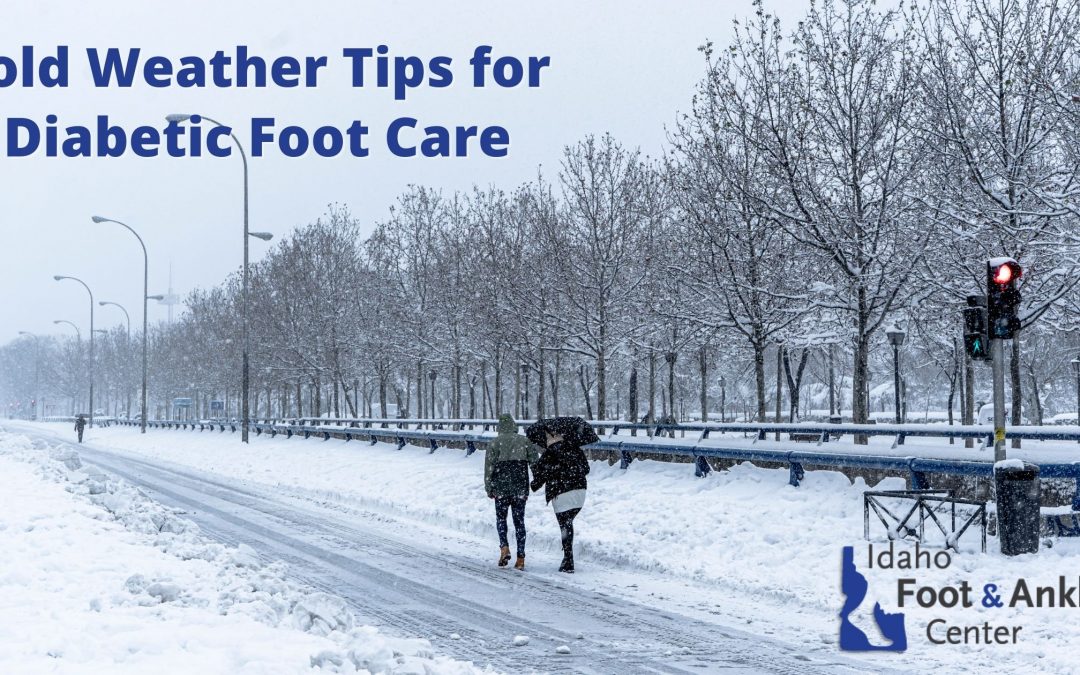Winter can be hard on everyone’s feet, but for those with diabetes, it poses an even greater risk of complications. Cold temperatures, poor blood circulation, and nerve issues can make feet susceptible to complications or infections. Luckily, there are things you can do to minimize your risk of serious foot problems this winter. By following these tips from The American College of Foot and Ankle Surgeons, you can help your feet stay healthy and happy all season long!
1. Moisturize! Use a daily moisturizer to help prevent dry or cracked feet.
2. Avoid Direct Heat. Warming your feet by a fire or a heater might feel nice on a cold day, but if you have nerve damage you may not realize how high the temperature is. Keeping your feet by direct heat too long may cause 2nd or even 3rd degree burns. To be safe, avoid warming aids such as heaters, electric blankets, and heating pads. Check the temperature before getting into a bath to ensure the temperature is safe for your feet.
3. Wear Proper Shoes. Shoes need to be well-fitting, supportive, and have ample room in the toe box. Also, pay attention to the different types of textures on socks and how that might affect your feet during the winter.
4. Watch for snow on your path. If snow and moisture gets on your socks or in between your toes, it can form bacteria and lead to infection. If your socks get wet, change them as soon as possible. Be sure to dry your feet thoroughly, taking extra care to dry in between your toes.
5. Have Regular Exams with Your Podiatrist. Regular appointments with Idaho Foot & Ankle Center can help you get the proper diagnosis and treatment for your foot issues. Early detection is key in preventing more serious complications.
If you have diabetes, contact Dr. Kylin Kovac and Dr. Jed Erickson at Idaho Foot & Ankle Center. They play a critical role in the prevention and management of complications of the foot in those with diabetes. Diabetes is serious, especially when your feet are involved. Early detection and simple care are just a few things that can be done to control and prevent complications as they arise. By following these guidelines, you can keep your feet safe, strong, and healthy all winter long!



Recent Comments